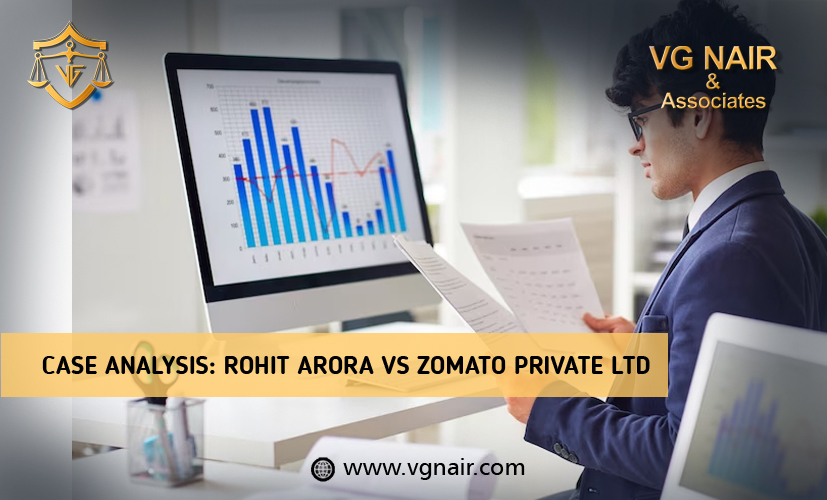CASE ANALYSIS:ROHIT ARORA VS ZOMATO PRIVATE LTD

Zomato, a platform facilitating food ordering and delivery from various local restaurants, operated initially as foodiebay.com before rebranding as Zomato in 2010. By 2012, it had become a major player in India's restaurant and food portal scene, launching services in multiple cities.
In the legal case of Rohit Arora v Zomato Private Limited, a longstanding Zomato user, Mr. Arora, filed a complaint under Section 19(1)(a) of the Competition Act, 2002. Allegations include Zomato's abuse of its dominant position, citing increased food delivery charges, unfair fees, and vertical restraints on restaurants, hindering their own deliveries and creating entry barriers.
To support these claims, Mr. Arora presents three specific incidents illustrating perceived unjust treatment of customers and partner restaurants by Zomato.
The case provides insight into applying legal principles in the digital marketplace. The Competition Commission of India's proactive involvement demonstrates a commitment to fair competition and consumer protection in the evolving online services realm.
Zomato's adept handling of the allegations, supported by robust evidence, showcases a commendable adherence to legal principles, emphasizing the importance of evidence-based decision-making and substantiated claims.
Additionally, the case underscores the legal significance of clear communication channels in contractual relationships, emphasizing adherence to established policies for legal integrity and consistent application of terms. Zomato's commitment to its terms of service reflects dedication to legally binding agreements and fair dealings.
Allegations include Zomato's competitive advantage from its foodiebay.com days and strengthened market position post-acquisition of Uber Eats in 2020. Claims of abusing its dominant position with unfair delivery charges and restrictions on certain restaurants are mentioned.
The informant cites three incidents related to delivery cancellation, food spillage, and inability to cancel orders as supporting evidence.
The case raises concerns about Zomato's competitive advantage, alleged abuse of dominant position, and the need for further investigation into cancellation policies and addressing consumer preferences to prevent unfair services.
In summary, the Rohit Arora v Zomato Private Limited case offers significant perspectives on the functioning of the digital marketplace and the application of legal principles in this context. The thorough scrutiny by the Competition Commission of India and its conclusion that Zomato lacked a dominant position highlights the necessity for a meticulous legal evaluation in competition-related matters. Additionally, the case underscores the vital role of transparent communication and compliance with established policies in contractual relationships. Zomato's commitment to its terms of service highlights the significance of honoring legally binding agreements and maintaining transparency in business dealings.
